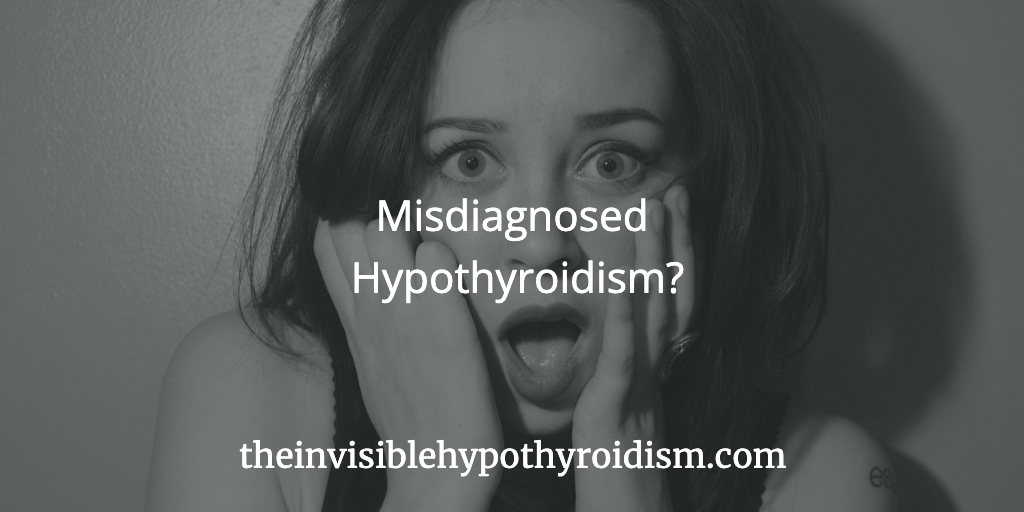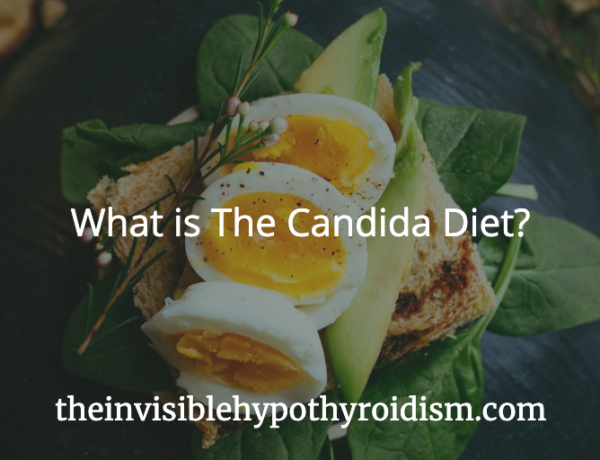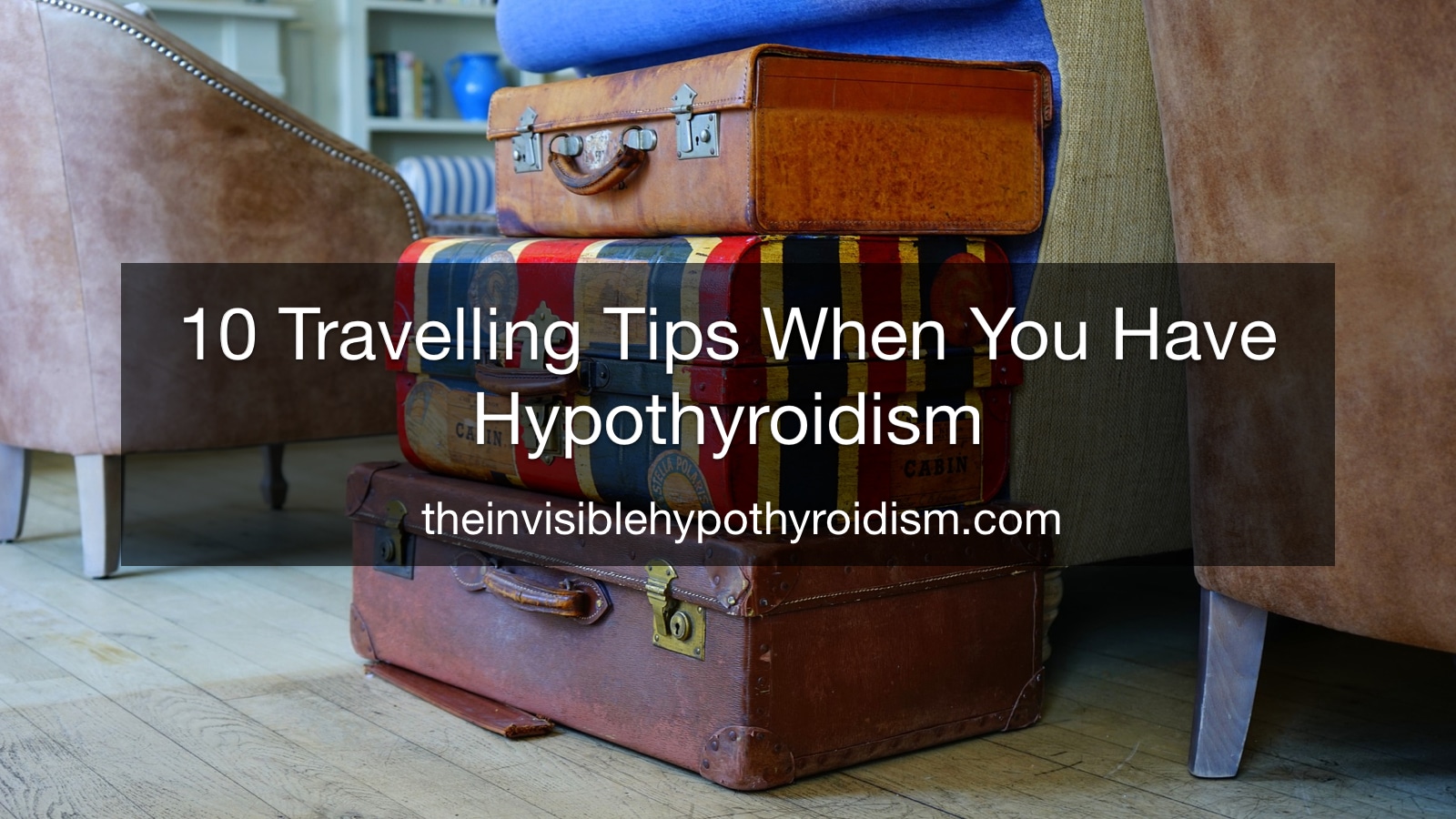Originally published on 18th September 2018 Last updated on 5th April 2024
Thyroid disorders such as hypothyroidism and Hashimoto’s are actually among the most common medical conditions, however, because the list of symptoms for hypothyroidism is so long and they tend to come on gradually, getting worse steadily over time, doctors can miss the crucial diagnosis of this chronic health condition.
Instead, hypothyroidism often goes undiagnosed or even misdiagnosed under something else. Therefore, if you or anyone you know has one of the diagnoses below, please ensure that a full thyroid panel is tested to rule out a misdiagnosed thyroid condition.
The list is somewhat long and includes both physical and mental health conditions.
1. Depression and Anxiety
This is a big one. So many thyroid patients share their stories of how they went undiagnosed with hypothyroidism for years and were instead told that they were ‘just depressed’, before eventual thyroid treatment helped to alleviate their mental health symptoms.
There are some symptoms of depression that are the same as those for hypothyroidism, such as:
- Low mood
- Being slow in speech and/or movement
- Constipation
- Feeling more tired than normal
But equally, there are some that are not present in depression, such as:
- Thinning of eyebrows
- A puffy face
- Overwhelming fatigue
- Dry skin
- Hoarse voice
- Muscle weakness
- Slow heart beat
- Raised blood pressure
- Raised cholesterol
These are physical symptoms, and not caused by something mental, but something physical. They are good signs that someone could be hypothyroid and if they’re on medication, not optimally treated. The link is the active thyroid hormone T3.
T3 has an important role in the health and optimal functioning of your brain, including: your cognitive function, ability to concentrate, mood, memory and attention span and emotions and ability to cope with life’s stresses. T3 interacts with brain receptors and makes the brain more sensitive to chemicals such as Serotonin and Norepinephrine, which affects your alertness, memory, mood and emotion. This can easily lead to a misdiagnosis of anxiety and/or depression. Many people find the two mental health conditions come hand in hand.
I’m one of many, many thyroid patients whose mental health improved greatly once on a medication that includes T3 and raised my low Free T3 levels.
2. Bipolar Disorder
Hashimoto’s, prevalent in about 90% of us with hypothyroidism [1], causes swings in TSH levels, with hyper and hypo symptoms to match. Hyperthyroid symptoms can include hyperactivity, anxiety, irritability and disturbed sleep, whilst hypothyroidism often causes fatigue and depression. Do those swinging symptoms remind you of anything? Bipolar Disorder perhaps?
Also known as manic depression, it could well be suggested that Bipolar diagnosis’ are actually masking Hashimoto’s cases, where patients swing between hypo and hyper symptoms, as the thyroid is attacked and destroyed, and thyroid hormone is released in to the blood stream in waves.
The 2002 study: “High Rate of Autoimmune Thyroiditis in Bipolar Disorder: Lack of Association with Lithium Exposure”, found that Hashimoto’s antibodies were more prevalent in a sample of outpatients with bipolar disorder (28%), in comparison to a control group (3-18%). However, what complicates things is that bipolar patients are often treated with Lithium, a drug well-recognised to cause hypothyroidism and trigger Hashimoto’s. So was the thyroid condition there first, or did the lithium cause it?
3. Alzheimer’s Disease
Particularly interesting and quite scary, is Alzheimer’s Disease being connected to your thyroid levels. A study found that: “Women with TSH below 1.0 and those with a TSH above 2.1 had a greater than two-fold higher risk of developing Alzheimer’s Disease.” [2]
In contrast, they observed no such relationship between TSH levels and Alzheimer’s Disease risk in men.
A study on dementia said that patients suffering from cognitive decline must be screened for hypothyroidism to rule it out as a cause. [3]
Since hypothyroidism can cause brain fog, confusion and forgetfulness, this is an important reminder.
4. Erectile Dysfunction, Low or Absent Libido
Yes, thyroid hormones can even affect your sex drive.
The active thyroid hormone T3 just so happens to be vital in the functioning of both the ovaries and testes, whereby too little available T3 can cause your sex drive to diminish.
We also know that low thyroid hormones can cause us to feel low in mood, irritable, overly-emotional, fatigued beyond words and achy. These are contributing factors as to why you may not be feeling up to sex when hypothyroid too. Read more here.
5. Infertility
Thyroid function and fertility are closely linked. Abnormal thyroid levels can lead to miscarriage, pre-eclampsia, anaemia, stillbirth and the baby developing congenital hypothyroidism itself, yet many doctors don’t think to check thyroid hormone levels when issues with fertility arise.
Thyroid hormones directly affect the uterine lining, causing infertility or miscarriages to occur when they are abnormal. As well as complications during pregnancy, some women with low thyroid levels may even struggle to fall pregnant at all. Read more here.
6. Heart Problems
Inadequately treated hypothyroidism can affect the health of your heart, such as an increase in developing heart disease, and “bad” cholesterol, with high and low blood pressure also both symptoms of hypothyroidism.
Cholesterol issues can also lead to a hardening of the arteries, which increases your risk of heart attacks and strokes, demonstrating how hypothyroidism can even be behind these. Read more here.
I had high blood pressure before my thyroid was properly treated.
7. Fibromyalgia
Although many thyroid patients are told they also have fibromyalgia and that it is a separate condition to their hypothyroidism, and although it can be, it can also be a symptom of a poorly treated thyroid condition as well.
Patients often say that once they were able to get out of their hypothyroid state, going by a full thyroid panel and optimal levels, not just TSH, their fibromyalgia improved or went away altogether.
Related Article: Muscle and Joint Pain and Hypothyroidism
8. Chronic Fatigue Syndrome/ME
Another one I have been diagnosed with, but is now ‘gone’ since being optimally medicated for my hypothyroidism, CFS or ME is a diagnosis often given to people who complain of always being horrendously tired, no matter what they do.
This can be a key sign of hypothyroidism not being optimally treated, and once your blood results (a full thyroid panel) read optimally, and you have optimal iron, ferritin, B12 and Vitamin D, etc. it may well just go away or improve a lot. It did for me.
9. Acid Reflux
It seems that hypothyroidism can lower levels of stomach acid. This could be due to a lowering of parietal cells, lowering their ability to produce gastric acid (hypochlorhydria). Because of this, the absorption of important nutrients is reduced (such as Vitamin D, B12, iron etc.), which can lead on to low or deficient levels of certain vitamins. Read more here.
Before taking antacids or prescriptions medications for acid reflux, it is worth checking your thyroid hormone levels.
10. Eczema
A common symptom of hypothyroidism is dry, tight and itchy skin anywhere on the body. If you’ve been told you have eczema or dermatitis, it’s worth checking your thyroid levels.
11. Menorrhagia or Other Period Problems
Along with many of the other symptoms of hypothyroidism, menstrual issues is a common one. Undiagnosed hypothyroidism or below optimal treatment for the condition is associated with a variety of menstrual issues.
Heavy periods, also called ‘menorrhagia‘, is perhaps the most commonly reported, along with dysmenorrhea – particularly painful periods. Irregular or sporadic periods can also be a symptom of hypothyroidism and so can ‘Amenorrhea’, when periods stop altogether. More info here.
12. Trouble Sleeping
Many people with hypothyroidism also develop adrenal dysfunction (note: it is more accurately referred to as hypothalamic-pituitary axis dysfunction) alongside it. This is due to your body activating its stress response and producing too much cortisol over a prolonged period of time.
As a result, this high cortisol can lead to difficulties getting to sleep, staying asleep and even feeling the famous ‘tired but wired‘. Adrenal issues may be seen in as many as 90% of us with autoimmune hypothyroidism, so it’s worth checking out. [4]
Read more on it here.
13. Low Vitamin Levels
There are certain low vitamin levels that are common in existing alongside hypothyroidism, especially autoimmune hypothyroidism, as it can be tied in to gut health and how well you absorb certain vitamins and nutrients.
Problems with intestinal permeability can lead to numerous deficiencies. These include iron, ferritin, B12, D, Iodine etc. and your diagnosis with anaemia for example may actually be due to a failing thyroid gland. Read more here.
Conclusion
Of course, addressing any conditions caused by hypothyroidism should always start by optimising thyroid treatment. When thyroid levels are brought up to optimal levels, as opposed to just being ‘in range’, a lot of symptoms and issues disappear or improve for patients.
So, if you have any of the conditions or issues listed above, ensure your thyroid levels are optimal to rule them out. These include TSH, Free T3, Free T4, and thyroid antibodies.
With so many conditions that hypothyroidism can be mistaken for, just how many people worldwide are going untreated and living poor quality lives due to misdiagnosis?
You can click on the hyperlinks in the above post to learn more and see references to information given.
References:
[1] https://www.ncbi.nlm.nih.gov/pubmed/3066320
[2] https://www.ncbi.nlm.nih.gov/pmc/articles/PMC2694610/
[3] https://www.dovepress.com/thyroid-function-tests-before-prescribing-anti-dementia-drugs-a-retros-peer-reviewed-article-CIA
[4] https://thyroidpharmacist.com/articles/pregnancy-announcement/







5 Comments
Frances Yule
December 30, 2020 at 12:50 pmThought I’d mention cortisol levels…………… since I was 13 I have suffered an array of disorders including non-organic epilepsy, bipolar, panic attacks, myoclonic spasms and what I refer to as burn outs when I would just suddenly collapse with depression and fatigue………… I was diagnosed as hypothyroid/Hashimotos finally in my late 50s and the medication really did make a difference because all of the former disorders simply vanished. It seemed obvious that all the former disorders were directly caused by hypothyroidism. Obvious until recently, that is. About 3 months ago I began having ‘mood swings’ and myoclonic spasms again and thought that my levels were too low but the blood test said I was too high which didn’t make any sense. In fact, nothing around the diagnosis of hypothyroidism was making sense. Then I began wondering what else could be behind these prevailing disorders. Cortisol. Without a doubt. I am no longer on thyroid meds and I treat the cortisol levels with diet …… I’m now 76 and it’s taken me a lifetime off my own bat to diagnose and treat myself. It’s not as if I didn’t talk about all of the symptoms over and over again. It’s not as if I was a difficult patient. It was all there to be recognised. No wonder so many people have lost their faith in doctors.
Katie
September 23, 2018 at 10:57 pmI have not been diagnosed with anything at this point. I have a very small tumor on my pituitary gland, and enlarged thyroid. However, my hormone levels are within ‘normal’ ranges. Every single month I suffer from horrible debilitating menstrual cycles paired with migraines, vertigo and nausea. I’m being bounced between Dr’s. with no relief. (neuro, endocrinologist and my last stop is this wk with the OB) Everything points to my thyroid. Every Dr that touches my thyroid says it’s enlarged. I really don’t know how to proceed…. Any suggestions?
Rachel Hill
September 24, 2018 at 8:03 amHi Katie, a lot of thyroid patients find more success with functional doctors. Have you looked in to these at all?
Caz / InvisiblyMe
September 18, 2018 at 4:50 pmSuch an important post! Misdiagnosis is rife not just because symptoms overlap (which you’ve illustrated very well) but because doctors are so behind the curve with thyroid diagnosis. In the UK, they simply don’t want to know; they test for TSH and unless it is WELL outside of their specific ‘normal’ range they rule it as something else (depression, fibro etc as you’ve mentioned). The likes of thyroid antibodies, Free T3, Free T4 & Reverse T3 are not tested unless you request them, and even then the request tends to be turned down and you’ll have to go private. Knowing all of this and what to look for and ask for is very important, & you do brilliantly raising awareness of this.
Caz x
Rachel Hill
September 18, 2018 at 5:20 pmCouldn’t agree more. It’s ridiculous! My TSH was ‘only’ 5, and just fell outside the range, so was denied any further help. Took a lot of pushing and persistence to get any further with it! Do you have Hypothyroidism Caz?